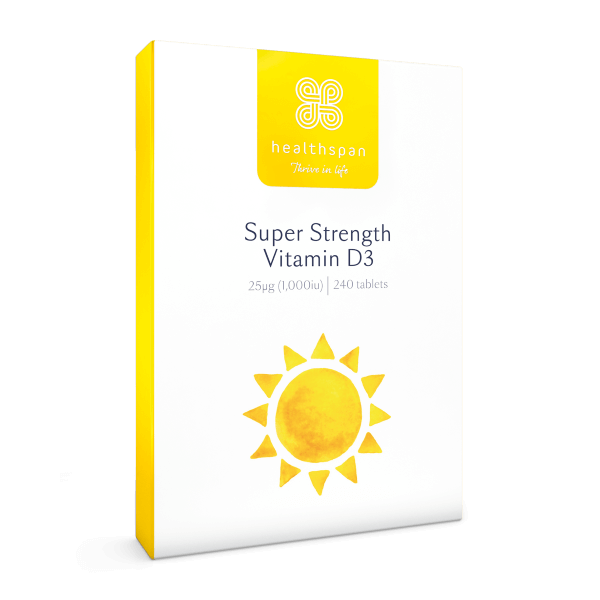Our immune system is essentially the tool that our body’s use to fight against viruses and infections that could potentially lead to us being unwell. So, how does it work? 'A good way to think of it is as an army with two 'divisions', which work in tandem to protect us against disease,' suggests Dr Peter Barlow, British Society for Immunology spokesperson and Associate Professor of Immunology at Edinburgh Napier University.
The immune system: Explained
'The first division, the innate immune system, is the body's frontline of defence. It includes physical defenders, like the mucus lining of our nasal passages and tiny hairs called cilia, which help sweep away inhaled germs together with small molecules, called antimicrobial peptides, and other chemicals, called cytokines, which transmit information between cells.
Supreme multitaskers, these are in constant dialogue with other parts of the immune army, helping recruit immune cells to the site of infection and causing, in the case of a cold, the familiar sore throat and runny nose.' Cells from the innate immune system patrol areas of the body often exposed to infection, like the lungs and the gut, and release chemicals to kill viruses and bacteria. It's fairly non-specific, which enables it to react swiftly - sometimes within minutes,' explains Barlow.
The second division, the crack force known as the adaptive immune system, is slower but more specific. 'Adaptive immune cells analyse how best to respond to particular invaders,' says Barlow. Cleverly, once they've worked this out, they 'remember' every invader they have ever encountered enabling the troops to swing into action producing antibodies against anyone that pays a return visit.
Why is the immune system important?
Your immune system is what defends your body against infections and illnesses as well as protecting your own cells. Looking after your immune system is important all year round, but particularly during the colder months.
When temperatures drop, our immune systems can become slightly weakened, meaning we are slightly more run down than normal and are more prone to illnesses. This is because, the protective lining of our nose and airways - which normally act as an antimicrobial barrier - can be-come less efficient from breathing in colder, drier air. Meaning, if we do encounter a virus during this season, our bodies defence system may not be as well-equipped to fight it off as it would be in the warmer months. This explains why the chillier months are often referred to as ‘cold & flu season’.
Taking steps to strengthen your immune system in the run up to winter can help to keep your immune system strong, which ensures it is in the best possible condition to fight off any unwanted viruses. This in turn can help to lower your chance of getting ill, or shorten the amount of time your unwell for, as your immune system can fight it off quicker.
What can I do to boost my immune system?
Germs are everywhere - Keep things clean
There's no doubting bad bacteria is found in all manner of places. A report from NSF International found a clean kitchen is the key to cold-prevention with the top six 'germiest' appliances including refrigerators, can openers, rubber spatulas and rubber sealed food containers. Most viruses and bacteria that cause colds are spread hand-to-hand or hand-to-food. So next time someone says, 'You haven't got a cold, have you?' when sipping from the same glass - they're thinking along the right lines. It goes without saying hands should be thoroughly washed with soap, not just water, before preparing food.
Take steps to improve your gut health
Poor gut health can potentially lead to a weakened immune system. The gut plays a significant role in the body’s immune function, and an imbalance in the microbes within your gut can impact immune responses. 'Most immune cells are found in our gut lining where they interact with the trillions of gut microbes (gut microbiota) that live there. 'When people are sick their gut microbiota changes while people with a healthy gut microbiota get fewer infections. We still don't know, however, whether this is cause or effect,' says Barlow. A diverse high-fibre diet is key to a healthy gut and immune system. In fact, one reason traditional remedies, such as garlic, are thought to work is via their effects on our microbes,' suggests Professor Tim Spector, of King's College, London.
Take probiotics to help prevent colds
'Good bacteria' in the gut can act as a link between our gut lining cells and our immune system cells, helping to balance our immune response and switching it off at the right time. So should we take probiotics as a preventive measure? Professor Merenstein, of Georgetown University in the US, who has spent time researching this, would advise that 'It makes some sense if you're someone who gets frequent colds.' Here at Healthspan we have a range of probiotics which you can take during the colder months to boost your immune system.
Top tips to boost immunity & prevent illnesses
- Wash your hands often - Germ-contaminated surfaces like door handles and handrails on trains, buses and escalators are the main way colds are spread
- Prioritise your sleep - Getting less than 7 hours sleep a night has been is linked with lower chances of your immune system warding off colds and flu. Natural sleep aids such as Valerian SleepAid capsules, CBD Nightime Support capsules and Nighttime 5-HTP tablets offer help drifting off to sleep, while our Go-Less bladder support capsules can help you to achieve a full night of undisturbed rest.
- Get your steps in - Moderate exercise such as brisk walking, dancing, swimming or cycling can help boost the body’s ability to defend itself from illness according to studies.
- Maintain a healthy weight - New research has suggested that being underweight or being overweight can increase a per-son’s risk of contracting illness or infection.
- Aim to reduce how much you smoke or vape (or stop if you can) - Try swapping out unhealthy habits for healthier ones! Tobacco smoke - and even E-cigarette vapour - irritate the lining of the nose and can change those hair-like cilia, which help to trap viruses and bacteria before they get the chance to make us ill.
- Add more balance to your menu – The phrase ‘you are what you eat’ couldn’t be more true when it comes to eating habits and health levels. Ensuring your body is getting all the vitamins and minerals it needs to keep your immune system running on top form is a vital part of preventing illnesses. Plenty of fruits, vegetables teamed with lean meats and oily fish are the perfect way to do this
- Minimise stress where possible – Stress is an inevitable part of every-day life, but taking steps to minimise your stress levels could do more than just make your day a little better. Studies show that people who are more optimistic and easy going are more resistant to colds than those who experience frequent and increased levels of anxiety, aggression and depression. Brain and mood supplements such as St. John’s Wort, CBD and herbal supplements like Ashwaganda and saffron are great for improving mood, relaxation and mental health.
Do colds boost your immune system?
Catching a cold can help your immune system build resistance against that particular cold virus as your body builds antibodies against that virus. This can help your body fight off the same virus and could help you avoid catching it again within a short time frame. This slight boost in protection won’t last forever, and will only add protection against that particular strain, not all types of cold or flu. While it’s impossible to avoid being exposed to illnesses, we don’t recommend trying to get sick in order to strengthen your immune system. But, getting a cold in the first place allows your body to get to know the virus and figure out how to defeat it, so next time you get that same virus, your immune system will remember how to defeat it, and therefore will be able to fight it off quicker.

Super20 Pro
Our best-selling probiotic
- 20 billion live cultures from 5 well-researched strains
- Contains Lactobacillus acidophilus, Lactobacillus paracasei, Bifidobacterium lactis and Bifidobacterium bifidum
- Supports the protective intestinal microflora in the gut
How to speed up cold recovery
If you’ve already come down with something there are ways that you can boost your immunity and get over a cold faster. Professor Stephen Morse explains, 'Our grandmothers may not have had our sophisticated scientific knowledge, but much of their advice passes the test of time: rest, stay in bed, get plenty of liquids, stay warm and do whatever works best for you to relieve symptoms,'.
While the NHS vitamins and minerals guidance offer a general overview of how much of each vitamin or mineral you should be getting, there are some specific supplements that may help support the immune system during illness. These include:
- Zinc - helps to support your immune function as well as promotes wound healing.
- Vitamin D supplements - it’s essential for bone, muscle and nerve health but also helps your immune system fight of bacteria and viruses.
- Vitamin C supplements - these help protect your body from any excessive damage and is well known for boosting your immune system as it helps to get rid of infections and any harmful bacteria.
For the perfect all-rounder, you may want to think about adding a multivitamin or mineral supplement for extra insurance.
Other factors that can affect your likelihood of getting ill…
Age and the increased risk of illness
Sadly we become more prone to respiratory infections with the passing years - and they can be more serious. This is because the innate and adaptive immune systems become less effective at fighting off respiratory bugs. As Barlow, explains, 'We have fewer of certain types of immune cells and our immune cells stop responding as they should - something called immunosenescence.' It's one reason flu - and some other respiratory infections - are more likely to be severe and even fatal in later life. A good way to actively boost your immunity, if you fall into this age category, would be to ensure you book your annual vaccinations with plenty of time before cold and flu season hits.
Some people are more prone to colds than others
'Your genes, general health and whether you have encountered that particular or a similar strain of cold virus before all play a role as do diet and lifestyle,' observes Barlow. Vitamin D, for example, plays a major role in activating our innate immune system and low levels are linked to a higher risk of respiratory tract infections while vitamin D supplements may prevent them.
Being super clean, especially in childhood, can affect later resistance to germs too and, says Barlow: 'Those exposed to viruses and bacteria at a young age have a better immune response in later life'. Chronic stress also worsens respiratory infections although not, as previously thought, because it suppresses immunity but because it disarms one of the body's key ways of switching off those immune system signals.
Common cold statistics
- Adults get 4-6 colds per year while children get 6-8
- Colds are the cause of 40% of all-time off work and 30% of time off school
- Colds can be caused by more than 200 types of viruses
- Symptoms typically last 1-2 weeks but you'll usually feel better after the first week
Protecting your immune system
As we mentioned earlier, sustaining a strong immune system is important all year round. However, this is particularly vital in the run up to winter. The yearly rounds of cold and flu are to be expected as the temperature starts to drop, but all is not lost! You don’t just have to sit back and wait for that pounding headache and scratchy throat you get when you know you’re coming down with something.
We’ve summarised the best steps you can take to ensure you protect your immune system this winter:
- Good hygiene – Washing your hands often and disinfecting surfaces and touchpoints are great for keeping things clean and bug-free!
- Keep your vaccinations up to date – give your immune system the best chance possible of fighting off viruses like the flu.
- Top up your vitamin D levels – Lack of sunlight during this time of year makes it hard for your body to get the vitamin D that it needs. Vitamin D supplements are a great way to reach your recommended daily amount for an optimal immune system.
- R&R is key! – Ensuring you’re getting enough rest is so important for allowing your body time to repair itself.
- Nourish your body – while vitamin D is super important for keeping your immune system in fighting condition, making sure you’re getting the daily recommended daily amount for other vitamins and minerals are equally important, this can be through taking supplements or through healthy balanced meals.
To help boost your immune system during the winter or year round, you can find everything you need to get your body’s defence system in optimal position by taking vitamins for your immune system. Or for more information, check out or helpful guide to the best immune system boosters.

Super Strength Vitamin D3
For healthy bones, teeth, muscles and immunity
- 25mcg vitamin D per tablet
- Helps keep bones, teeth and muscles healthy, and supports immunity
- Multiple health benefits from €0.06 a day







